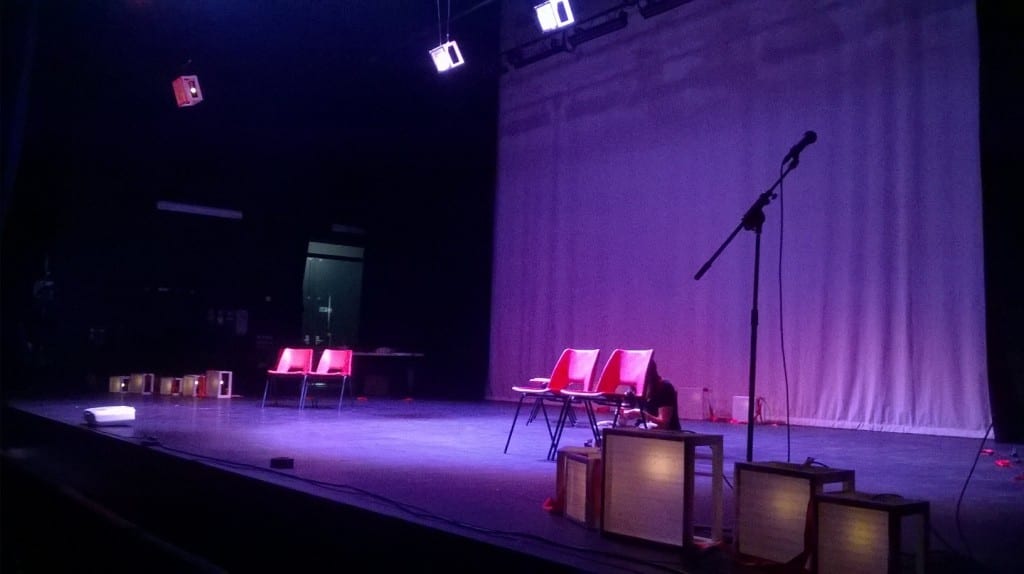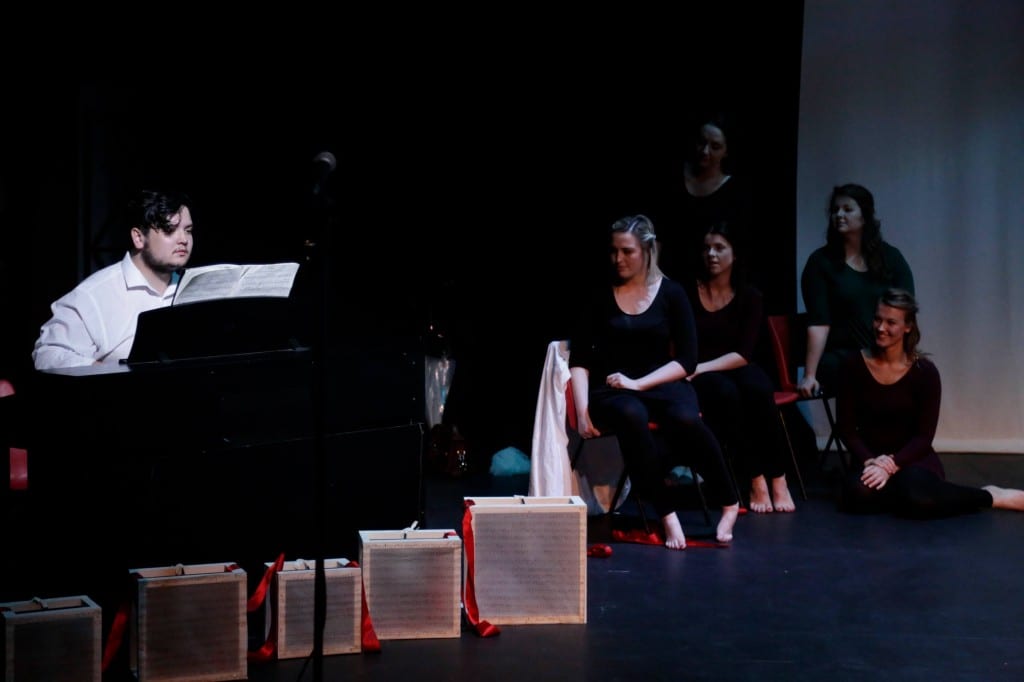We did it! The performance has happened and I’m still on a high! I can’t help but keep looking at photographs from our dress rehearsal and smiling, I’m just so proud of what we have achieved as a group over the last few months.
Leading up to the performance we had the technical and dress rehearsals. During these rehearsals my role was less vocal, it was as if I had finished creating the piece and handed it over to our stage manager to run the show and likewise to the performers to fully engage with the piece. Due to this, I was able to sit in the auditorium and make notes on what needed changing, minor issues with the technical elements, set and props and the blocking of the show; it was essentially my job to ‘maintain a sense of positive calm, methodically working through each problem that occurs, all the time ensuring that the integrity of the production is not compromised.’ (Foreman, 2009, p. 37) In general, everything ran smoothly; there were only a few minor changes made to the lighting and we decided to discard the props table. On another note, after four months of rehearsals, it was a fantastic moment getting to see the full production on stage with all of the technical elements. I was pleased with the dressing of the stage; the boxes looked wonderful, they were a simple touch that fitted with our narrative and left enough room for all of the physical aspects of the show.
(Michael Woodhall, 2015)
I was very happy with the performance itself. There were no major issues; a couple of performers stumbled on lines and some movement was a little out of time but overall the performers were great and in terms of energy, focus and believability, it was easily the best they had performed! It wasn’t just me who enjoyed the performance; we also received some fantastic feedback. I personally found it overwhelming that so many audience members were emotionally invested in the piece and that it even moved some to tears.
If the piece was to get developed further there are certainly elements I would like to work on. Firstly, I think the unison movement in the section where The Wife decides to leave The Man could be adapted. Due to time constraints, some of the choreography had to be repetitive and I think it would be nice to see that section go on more of a journey not only with the movements but similarly with the acting (body language, facial expressions, dynamic changes through movements etc.) It would also be interesting to look at the live music element of the piece and develop that further; it is touched upon during one scene and then forgotten about for the rest of the show. If the piece was to be extended that is definitely an element I would like to develop.
(Phil Crowe, 2015)
Speaking of developing the piece, I would love to think that this is not the end of The Man Whose Memories Fell Out. I think the piece has such huge potential and believe, after hearing responses, there is an audience interested in a piece such as this. This experience has certainly made me more determined to create work as a theatre company and I certainly want to carry on working in a physical and visual way. I’m excited to see what the future looks like for the talented members of our company and the fantastic work we continue to create, whether that will be together or on separate projects.
Works Cited
Foreman, G. (2009) A practical guide to working in theatre. London: A & C Black Publishers.

